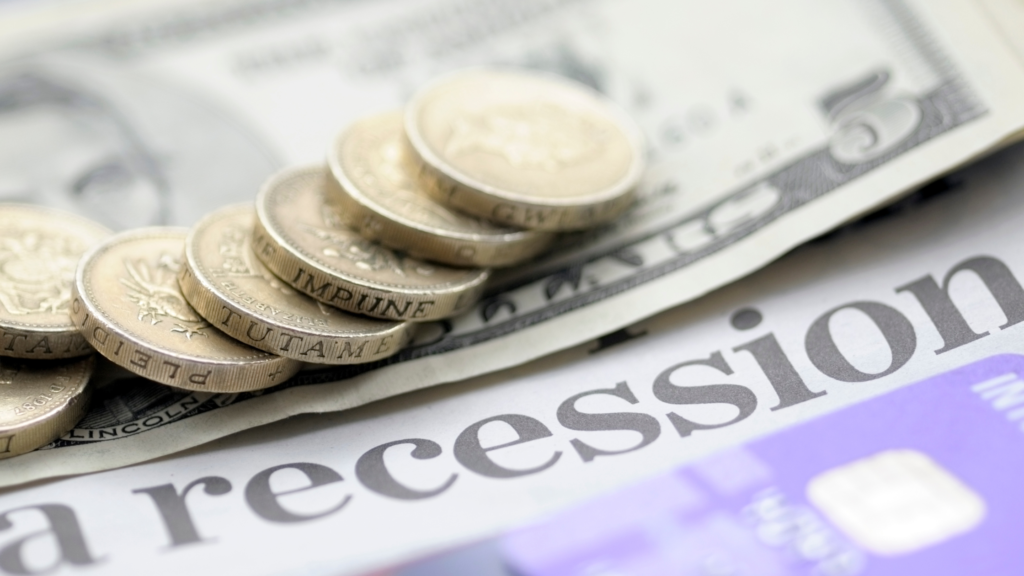Will there be a recession in 2024? The jigsaw of predicting a likely recession in 2024 takes shape with each piece of knowledge, influencing decisions and encouraging strategic steps to strengthen against economic risks.
Being proactive in financial planning is essential for successfully navigating economic difficulties. Every business leader needs the foresight to continue successfully increasing their revenue and optimize operations. In line with these endeavors are preparing and anticipating a recession.
Mastering the economic terrain requires a delicate dance of evaluating multiple indicators, examining past data, and remaining alert to global developments. This blog post tackles your questions about the upcoming year and whether there will be a recession.

Untangling the Complex Web of Signs and Indicators
To predict a recession in 2024, we must analyze the indications and indicators that economists study. These include developments in the labor market, consumer spending habits, inflation rates, and the overall health of key industries. Monitoring these variables provides useful information about the economic climate and prospective developments.
Early Warning Signs of Job Market Trends
Job market developments are one of the most important indicators that economists look at. A rise in job layoffs and a sudden increase in unemployment rates can be early warning signs of an imminent economic collapse. Analysts can gauge the health of the labor market by closely monitoring employment reports and industry-specific job patterns.

Consumer Spending Patterns: The Economic Pulse
Consumer expenditure is an important determinant of economic health, making it an important indication for predicting the likelihood of a recession in 2024. A significant drop in consumer expenditure can indicate a lack of confidence in the economy. Tracking retail sales and consumer confidence indices provides insight into the economy’s pulse.
Inflation Rates: A Policymakers’ Balancing Act
Inflation rates are critical to economic stability. Inflation that is too high erodes purchasing power; inflation that is too low may suggest a lack of demand. To maintain a delicate equilibrium, policymakers closely watch inflation. Sudden increases or decreases in prices might be indicators of greater economic problems.

Overall Industry Health: Economic Vitality Indicators
Key industry health acts as an indicator of economic strength. Monitoring industries like manufacturing, real estate, and technology can provide insight into the broader economic picture. Industries seeing decreased profitability or lower activity may indicate possible problems ahead, adding to the story of a 2024 recession.
Government Policies: Piloting the Economy
Government policies have a significant impact on economic outcomes. Fiscal and monetary policies, such as interest rate hikes and stimulus packages, can influence the path of economic development or decline. Understanding the government’s approach to economic management becomes critical as we anticipate a recession in 2024.

The Global Dynamics Ripple Effect
Global dynamics have a big impact on domestic economic situations in our interconnected society. Trade links, geopolitical events, and volatility in overseas markets can all have an impact on the US economy. Assessing these worldwide issues is critical to developing a thorough picture of the possibility of a recession in 2024.
Historical Context: Past Experiences
Examining historical economic cycles sets the stage for our consideration of a 2024 recession. While history does not repeat itself perfectly, patterns and lessons from previous recessions might be useful. By examining historical economic issues, we might gain a better understanding of how the United States might deal with future downturns.

Preparing for Economic Uncertainty Through Mitigation Strategies
Individuals and organizations can make proactive efforts to lessen the impact of economic uncertainties, regardless of whether a Recession occurs in 2024. Financial resilience, diversification of investments, and remaining educated about market movements are all techniques that can help you weather economic storms.
Creating a Personal Safety Net for Financial Resilience
Prioritizing financial resilience in the face of Signs of a Recession in 2024 is critical. Create or supplement your emergency fund to meet critical expenses during anticipated economic downturns. Reviewing and reducing unnecessary costs in your budget gives you more financial flexibility.

Investing Diversification: Protecting Against Volatility
When faced with signs of a recession in 2024, diversification is an effective tactic. To reduce risk, diversify your investments across asset groups. Exploring opportunities in recession-resistant businesses and contemplating asset reallocation based on market conditions might help mitigate the impact of economic downturns.
Staying Informed: Knowledge as a Defense
In unpredictable times, knowledge is a great protection. Individuals and corporations can make more educated judgments if they are aware of economic statistics, government policies, and global dynamics. Monitoring credible news sources and financial publications regularly keeps you ahead of the curve.

Final Thoughts: Resilience in the Face of Uncertainty
As we consider the likelihood of a recession in 2024, we must approach the subject with prudence and resilience. While economic forecasts provide useful information, the future is fundamentally uncertain. Staying informed, reacting to changing situations, and being flexible can help you build stability for challenging times.

